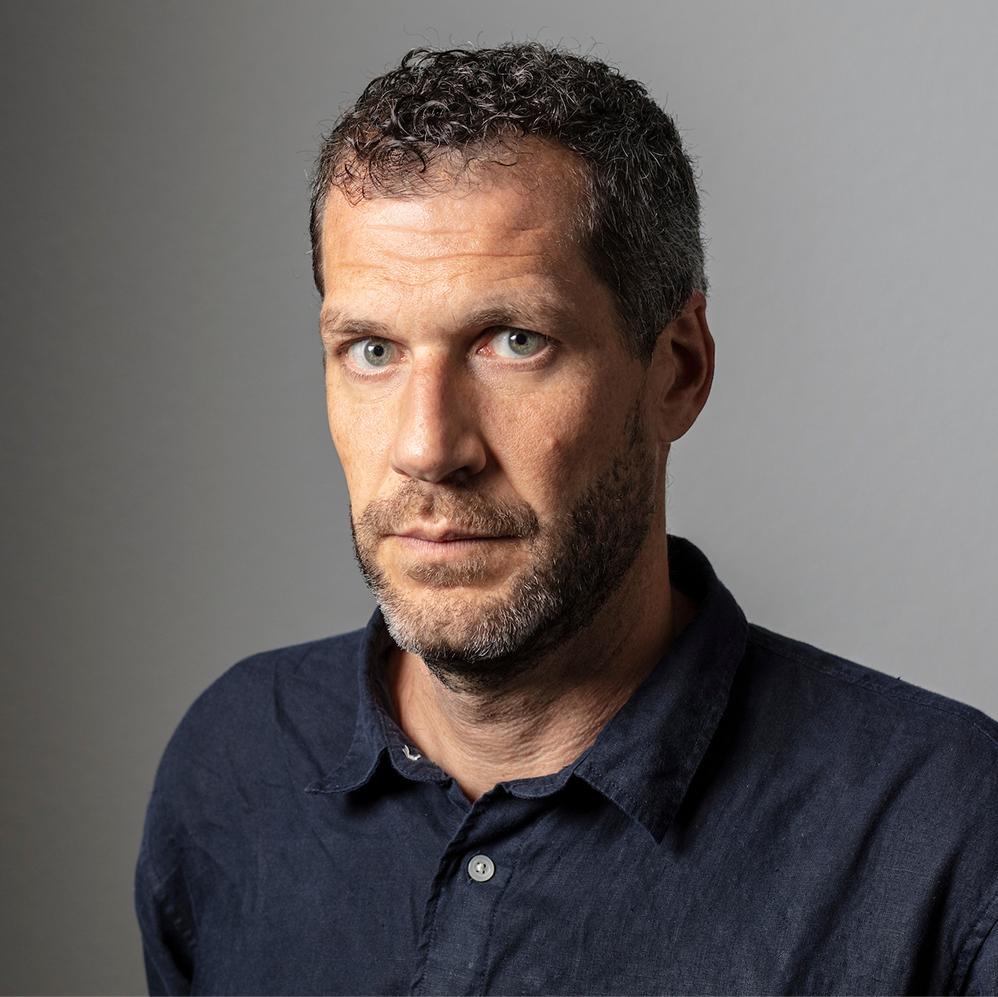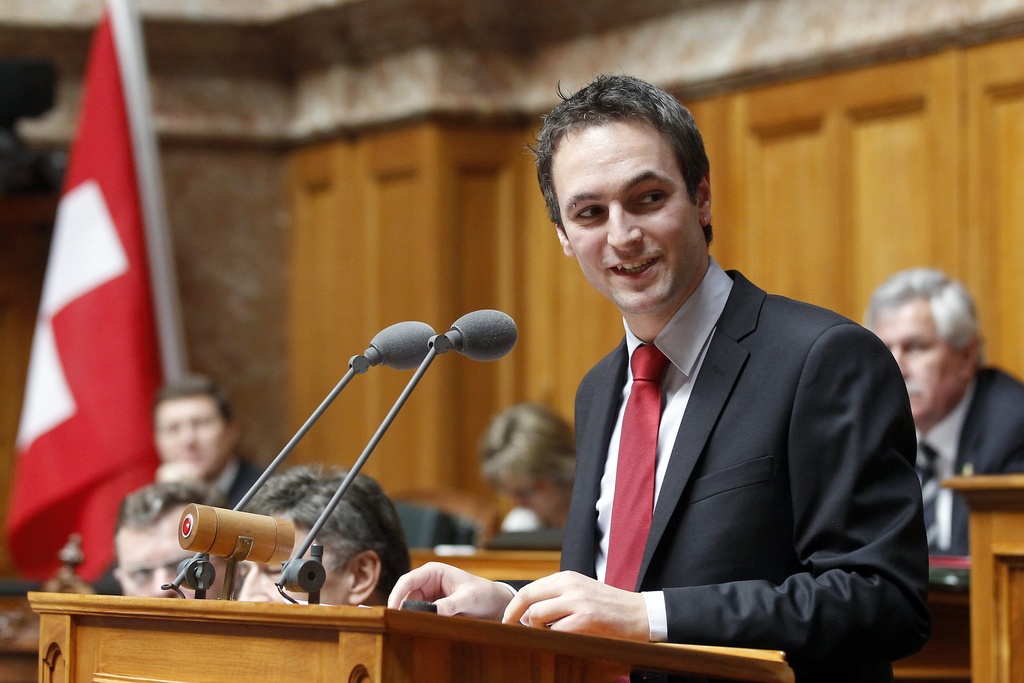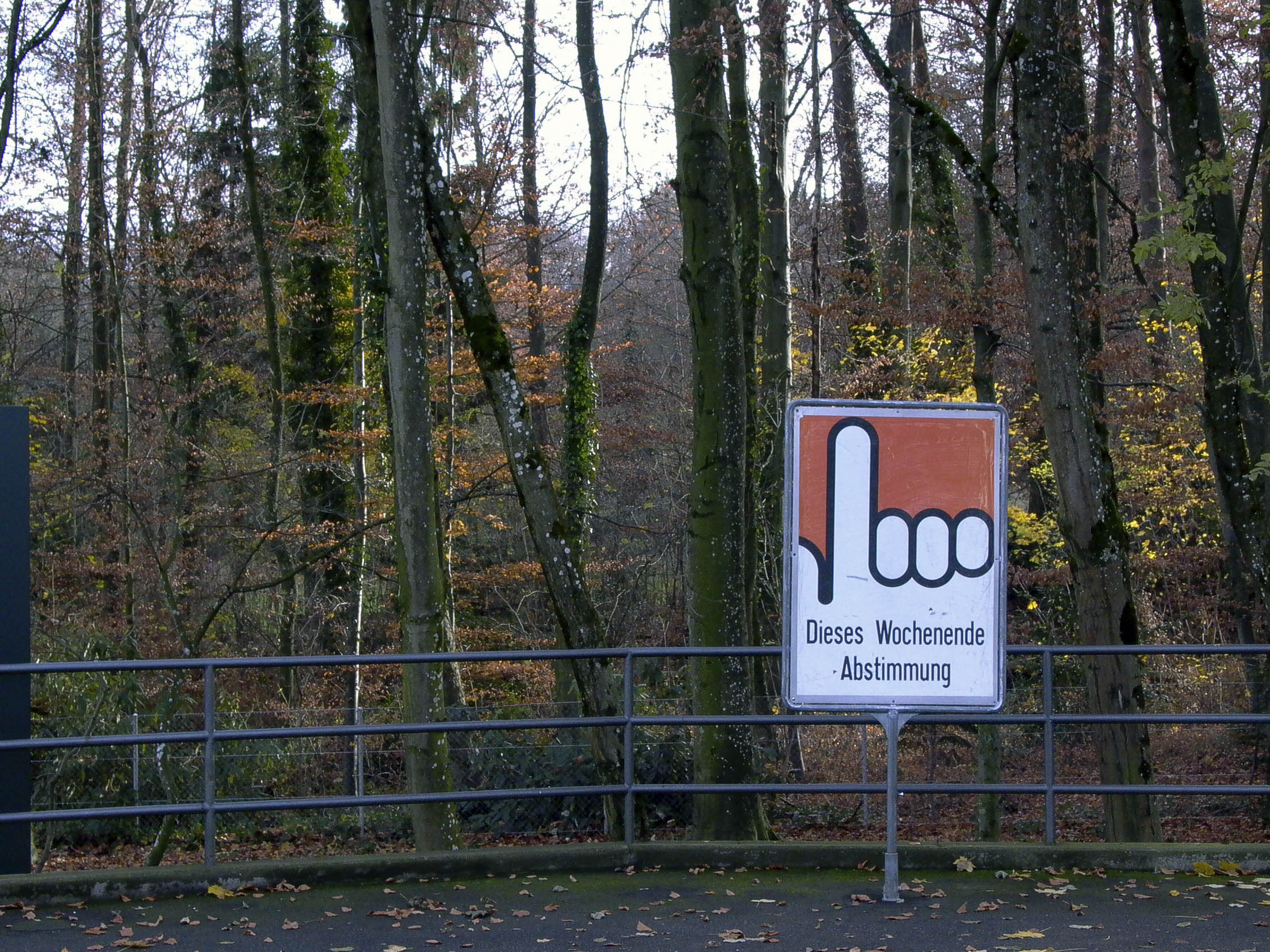Politics remain on young adults’ agenda

Despite a marked disinterest in popular votes, Swiss youth do not lack imagination when it comes to getting involved in a political cause. But even when boosted by the internet, activism is often doomed to a fleeting existence.
During the last parliamentary elections in October, 32 per cent of young Swiss aged from 18 to 24 took part in the vote. At the same time, 70 per cent of those aged 75 and over turned in a ballot. This sizeable difference between the two groups is observed during most national elections.
But recent years have seen the trend somewhat reversed. While some politicians use the term “gerontocracy” to describe this new model of Swiss participative democracy, a recent study debunks the notion that young people are not interested in public affairs.
“We cannot reduce political participation to just votes and elections,” says Martina Rothernbühler, of the Swiss Foundation for Research in Social Sciences (FORS) and author of the first Swiss study to examine the younger generation.
“A whole series of new forms of non-institutional participation have developed in the last few years, aided by the emergence of the internet and social media.”
False marriage
Intelligent activism, or the so-called “smart mob” movement, is a striking example of that new form of political engagement. Convened via internet or by SMS, it brings together a group of strangers for a common action which is often rapid and spectacular.
The initiatives to ban army weapons in the home and the exportation of war materiel led to actions of this type. In some larger cities, groups of people were seen on the street mimicking a trigger action on a rifle and then dropping to the ground pretending to be dead.
After staying that way for a few minutes, the activists got up from the ground and quickly left the scene.
A geology student at Fribourg University, Piero Schmid, 22, is used to these kinds of actions. Responding to a call from non-governmental organisation SOS Racism, he recently participated in a fake wedding on the street to protest against a law restricting foreigners without a visa from marrying a Swiss.
“The means of communication have completely changed the way of thinking and engaging in politics,” says Schmid, who has no formal political affiliation but whose ideas are on the left of the spectrum. “These actions, which mix art, irony and political values are becoming rapidly more common.”
Pragmatism
Micha Küchler of the Swiss National Youth Council says that “young people engage in a way that is dynamic and to the point. They know how to mobilise actively on an issue but as soon as it is no longer in the news, they are gone.”
“Take for example, the protests which followed the nuclear catastrophe in Fukushima. This new reality corresponds to a world which is more fragmented and in which information replaces itself at an amazing rhythm.”
Except for a handful of traditional or conventional activists and partisans, a long-term commitment to political activism is not the norm.
“I am the perfect example,” admits Schmid. “I have neither the time nor the desire to be constantly active politcally.”
While Küchler says it is a positive development that young people today are capable of keeping a critical distance with institutions and ready-made answers, he points out that without “institutional grounding, it is difficult to create lasting change.”
Rothernbühler says that “young voters mobilise when they feel they, or those close to them, are directly involved. This was notably the case during the votes about expelling foreign criminals or banning military weapons in the home”.
Insufficient political education
It is often the case, as low turnouts for different votes or elections show, that subjects which are complex and technical contribute make young people reluctant to participate.
“On principle, I always vote even if sometimes I struggle to understand the whole issue,” admits Schmid. “Politicians themselves are confused and often contradict themselves. On the other hand, political education is Switzerland is largely insufficient.”
Küchler says it is imperative that civic education classes, which are often sacrificed to save money, be reinforced and that adolescents from poorer or ethnic backgrounds given priority for these courses.
The FORS study revealed a deep chasm between young people with a high level of education and others in terms of political participation, although the difference between men and women was no longer decisive.
But Küchler thinks that “adults are sometimes just as overwhelmed” by certain subjects, especially when it comes to economic policy.
“Young people think they must understand everything before forming an opinion about an issue, so in fact they quickly become just as well informed as their elders,” he says.
Electronic voting
Because the barrier between the virtual and the real world is no longer so huge, Rothernbühler suggests that electronic voting could lead to a greater participation of young adults in votes and elections.
“In Geneva, we were able to show that young people participated more and were no longer underrepresented in the results when they had the option of voting on line,” she says.
And while Küchler remains to be convinced that online voting will convince more young people to participate, Schmid is absolutely opposed to the idea.
“Voting is an act which requires time and commitment. It’s not about simply clicking “like” on a facebook status update. Moreover, the risk of manipulation and propaganda are much higher on the web,” he points out.
It’s a point of view shared by several recently elected young politicians. The newly created Pirate Party has not hesitated to discuss the idea of a “digital dictatorship”. Far from being over, the debate reveals that generation 2.0 knows how to be critical of the digital environment and how it presents politics.
The Selects study carried out following the 2011 parliamentary elections revealed that the participation of young people aged 18-25 has been growing since the 1990s.
“Until now, politics was very routine in Switzerland. The system was very stable and there was no debate about the composition of the government. The growing polarisation has changed the game, which has had the effect of mobilising young people to participate,” says political scientist Georg Lutz.
Although the gap between generations is reducing, it remains large. “The older we get, the more we vote,” says Lutz. “The elderly vote by habit and by obligation. Young people, on the contrary, vote only when they feel directly implicated by the issue.”
Neither does the multitude of votes, whether at a national, cantonal or communal level, make it more attractive for young people to vote, he says.
In association with the Secretariat for Education and Research, the Swiss Foundation for Research in Social Sciences (FORS) of Lausanne surveyed 1,360 Swiss aged 18-24 to better understand their manner of participating in political life.
The study concluded that young people prefer occasional, informal, and individual forms of participation, and generally only commit for the short term.
“Intelligent” activism, such as boycotting certain products, collecting signatures for an online petition and joining politically-orientated facebook groups play a more and more important role.
The authors of the study suggest that these new forms of participation, not yet completely recognised, represent new means of accessing and engaging in political debate for young adults.
The also consider that the option of online participation in votes or elections could contribute greatly to enticing more young people to participate.
Finally, researchers reveal that an interest in politics depends strongly on the level of education and young people tend to find that the formulation of vote propositions is often too complex.
(Adapted from French by Sophie Douez)

In compliance with the JTI standards
More: SWI swissinfo.ch certified by the Journalism Trust Initiative



You can find an overview of ongoing debates with our journalists here. Please join us!
If you want to start a conversation about a topic raised in this article or want to report factual errors, email us at english@swissinfo.ch.